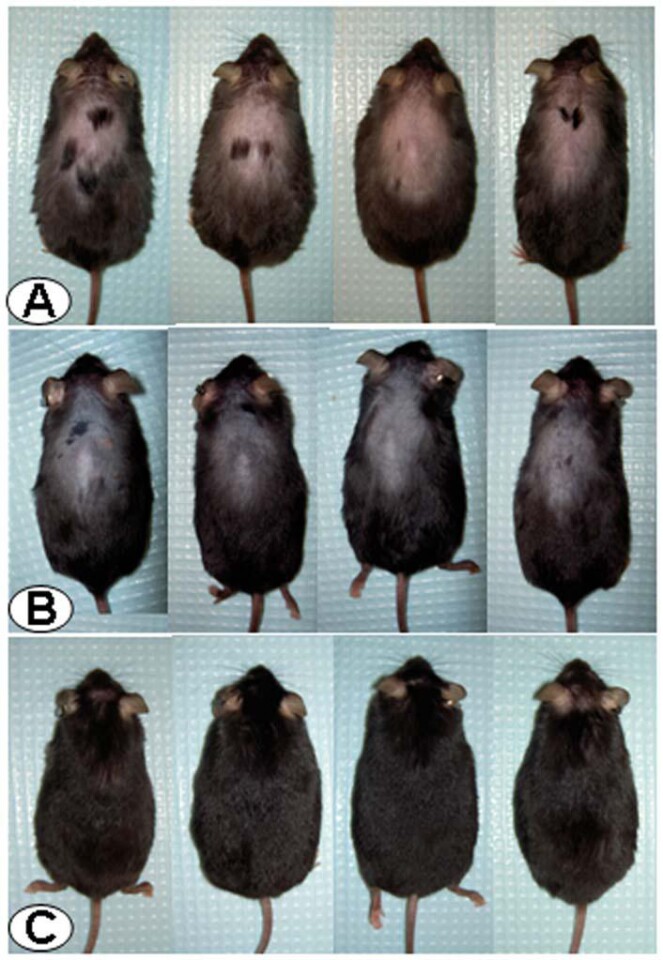While conducting research into brain-gut interactions, a team led by researchers from UCLA and the Veterans Administration may have inadvertently stumbled across a new treatment for hair loss. During an investigation into the affect of stress on gastrointestinal function, the researchers believe they may have found a chemical compound that induces hair growth by blocking a stress-related hormone associated with hair loss.
It's long been recognized that stress plays a role in hair loss and, although there have been numerous hair-restoration remedies emerge over the years, even legitimate medications such as minoxidil have only shown limited effectiveness. The UCLA-led team says their findings show that the chemical compound they have uncovered could provide long-term hair regrowth from a short-duration treatment.
Instead of looking for mice burdened with debt or in the process of moving house, for their research the researchers had been using mice that were genetically altered to overproduce a stress hormone called corticotrophin-releasing factor, or CRF. As these mice age, they lose hair and eventually become bald on their backs, making them visually distinct from their unaltered counterparts.
The UCLA and VA researchers then injected a peptide called astressin-B, which has the ability to block the action of CRF, into the bald mice to observe how its CRF-blocking ability affected gastrointestinal tract function. When the initial single injection had no effect the investigators continued the injections over five days to give the peptide a better chance of blocking the CRF receptors. They measured the effects of this regimen on the stress-induced response in the colons of the mice and placed the mice back in the cages with their hairy counterparts.

Three months later the researchers returned to the mice to conduct further gastrointestinal studies and found they couldn't distinguish them from their unaltered brethren as their previously bald backs were now covered in hair.
"When we analyzed the identification number of the mice that had grown hair we found that, indeed, the astressin-B peptide was responsible for the remarkable hair growth in the bald mice," said Million Mulugeta, an adjunct professor of medicine in the division of digestive diseases at the David Geffen School of Medicine at UCLA and a corresponding author of the research. "Subsequent studies confirmed this unequivocally," he added.
Particularly noteworthy was the fact that just one injection a day for five consecutive days was enough to maintain the effects for up to four months.
"This is a comparatively long time, considering that mice's life span is less than two years," Mulugeta said.
Whether the same effect happens in humans remains to be seen, but the researchers say the fact that the bald mice also showed mild hair growth when treated with minoxidil alone, as is the case in humans, suggests that astressin-B could also produce hair regrowth in humans. In fact, it is known that the stress-hormone CRF, its receptors and other peptides that modulate these receptors are found in human skin.
UCLA and the Salk Institute have applied for a patent on the use of the astressin-B peptide for hair growth.





